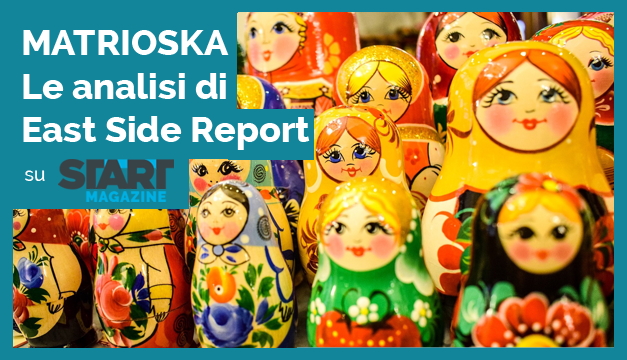Why Eastern Countries Slap Against Ukrainian Wheat

Eastern European countries are complaining about the invasion of cheap grain from Ukraine. Here's what's happening. Pierluigi Mennitti's insight from Berlin
There is a front on which the solidarity with Ukraine of the Central and Eastern European countries risks breaking down, that of wheat. The time of the blocked ports in the Black Sea, of the collapse of the crop in the Ukrainian granary of Europe after the Russian invasion, as well as that of the systematic theft of grain by Moscow seems long gone. Now Eastern European EU states are even complaining that their agricultural markets are flooded with cheap grain from Ukraine, putting domestic production at risk.
THE PROTEST OF EASTERN EUROPE IN BRUSSELS
In a joint document presented by Poland, Hungary, Bulgaria, Romania, the Czech Republic and Slovakia at the last meeting of EU agriculture ministers held in Brussels a couple of weeks ago, the complaint appeared clear: "There are increasingly signs evident that this increase, if not countered, could put EU agricultural producers in serious difficulty”.
Brussels had reacted to Russia's blockade of Ukrainian exports with trade facilitation measures. To supply the world market and the poorest countries, the European Union has created the so-called "solidarity lanes" to facilitate the movement and control of Ukrainian agricultural products at the borders and has also temporarily abolished import duties on Ukrainian goods .
The result was a drastic increase in imports of grain to Eastern Europe, but also of other products. The numbers that the signatory countries of the document presented in Brussels would prove it. The import of corn from Ukraine, for example, has increased from a few thousand tons to several million tons. Poland imported 6000 tons of maize from January to November 2021, while in the same period of 2022 the figure was 1.6 million tons. In Hungary, corn imports increased from 5,000 to 900,000 tons. Again in the year that has just ended, imports of wheat from Ukraine into some EU countries were also "hundreds or even thousands of times higher than in 2021", complained the leaders of Central and Eastern European countries. Trade facilitation also greatly increased imports of sugar, flour, honey, sunflower seeds and other agricultural products.
The goal of channeling Ukrainian agricultural products to the world market has failed, Eastern Europeans complain. For example, "the land transport of Ukrainian corn to Western Europe is largely unprofitable, as a result the grain is replacing domestic products such as low-cost animal feed in the Eastern European countries bordering Kiev".
The six signatory countries (precisely the four of the Visegrad group plus Romania and Bulgaria) do not question the aid to Ukraine, which all except Budapest have sent with great generosity. But they are asking Brussels to take action, finding a way to demand that grain imported from Ukraine through solidarity circuits does not remain within the EU, but is sold on the world market.
HOW IS THE GRAIN MARKET
In the meantime, analysts observe, the situation on the world market has calmed down considerably. The price of flour has fallen below the threshold of 290 euros per tonne again, thus approaching the level before the Russian invasion of Ukraine, equal to 275 euros. In May 2022 it had reached 430 euros. The price of sunflower – a market where Ukraine accounts for 50% of world production – has returned to €570-600 per tonne. It had gone from €500 in 2021 to €620 in January 2022 to reach €900-1000 in May 2022. Even the FAO cereal price index at the end of 2022 was only 4.8% higher than the same month of the previous year.
The reasons for the drop in prices are different. Ukraine has increased its exports significantly since the end of the Russian blockade on Black Sea ports, as has Russia. And in the southern hemisphere, from Australia to Argentina to Brazil, it's harvest time.
THE SITUATION REMAINS UNSTABLE
According to experts, however, European consumers cannot yet expect a rapid drop in prices. The situation remains too unstable: together with the consequences of the war in Ukraine, the growing impact of climate change on crops also plays an important role. Times remain tough even for the poorest countries. The United Nations trade organization UNCTAD pointed out that prices are still significantly higher than in 2020. Furthermore, the sharp increase in the dollar exchange rate makes imports even more expensive for these countries.
This is a machine translation from Italian language of a post published on Start Magazine at the URL https://www.startmag.it/economia/crisi-grano-ucraina-europa-est/ on Mon, 20 Feb 2023 04:25:54 +0000.
